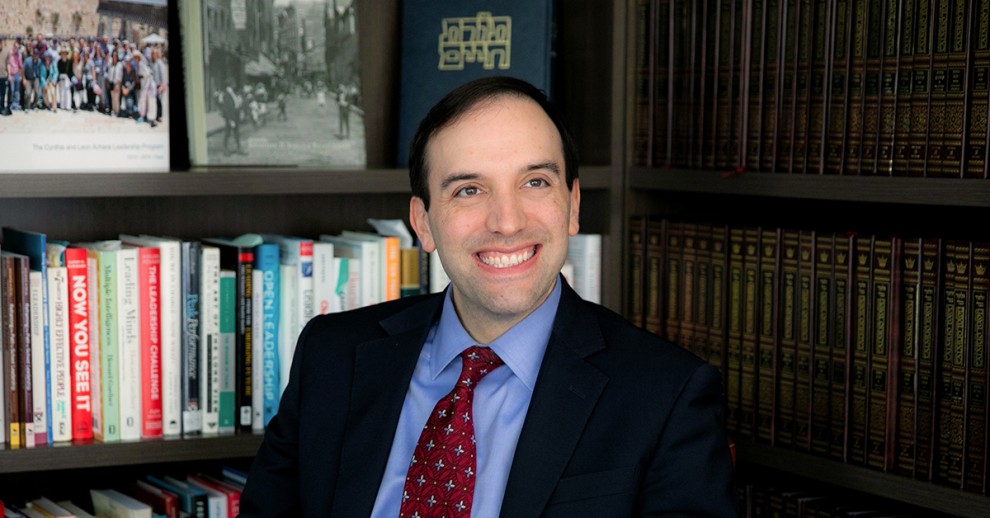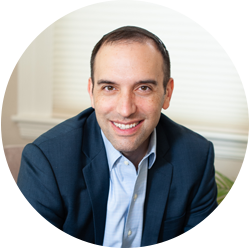
Shalom Chaverim,
Earlier this summer I met with the two presidents of the Jewish Genealogical Society of Greater Boston (JGSGB). The Society is an organization run entirely by volunteers with hundreds of members and is associated with more than 70 other Jewish genealogical societies worldwide. They host events, offer classes, and provide resources to help people who want to research their family history.
Ostensibly, our meeting was to explore ways that CJP and JGSGB might support one another and to educate me about the organization. But our conversation turned to the deeper why behind Jewish genealogy and what motivates people to devote so much time to this organization and to researching their family history.
We discussed the growing popularity of services that help people explore their biological ancestry such as 23andMe genetic testing and Ancestry.com. While I have not yet done the research on my own family, the people I know who conduct this research do not take this work lightly! They are passionately committed to the power of researching their family history and the meaning it brings to their lives.
One of the JGSGB presidents put it quite simply: “It connects you. There’s something about understanding your history that is very sustaining to your present and your future.”
This explanation struck such a deep chord with me.
It reminded me of Rabbi David Hartman’s description of what he calls “technological civilization” in A Heart of Many Rooms: Celebrating the Many Voices Within Judaism. “Technological civilization looks to the future for salvation; it promises something better for tomorrow and encourages severance from the past,” he writes. Hartman adds:
Technological consciousness is memory-less, for to remember is to connect the present to the past . . . Young people growing up with this type of experience become persons without memories, constantly in search of identity . . . internally frightened because they do not know where a future severed from a past will lead to.
While Hartman is known for celebrating the “innovative spirit” in Jewish tradition and certainly believes in change and adaptation, here he reminds us that being “memory-less” or rootless can have negative psychological and existential consequences.
Perhaps this is the connection and sustenance that the JGSGB president was talking about. I suspect that, at least in part, it is existential longing to know where we come from and what our stories are that is attracting so many people to genealogical research.
This seems particularly relevant as we head into this weekend. Sunday is Tisha B’Av, the saddest and most somber holiday on the Jewish calendar, on which we commemorate the destructions of the First and Second Temples in Jerusalem, and the many other tragedies that have befallen the Jewish People throughout our history. We also mourn for our painfully broken world and remind ourselves to look inward and outward at our roles and responsibilities in breaking and healing it.
I can remember commemorating Tisha B’Av at Jewish summer camp, sitting on the floor in the dark, singing songs about Soviet refuseniks.
Fasting on Tisha B’Av and reading the Book of Lamentations are about history, culture, and community. They are, for me, expressions of what Hartman, earlier in the same book, calls a "leap of identification with a people and its history."
This leap is not just about Jewish continuity, though there is something deeply moving to me about being a link in the chain of our People’s history. It is also about a sense of identity and belonging — the deeply human need to connect, to know where we come from, and to feel part of something larger than ourselves, in service to a better future and a better world.
Shabbat Shalom,
Rabbi Marc Baker

About the Author
CJP President and CEO Rabbi Marc Baker is an educator, writer, and leadership mentor who is devoting his life to Jewish learning and building Jewish communities.
